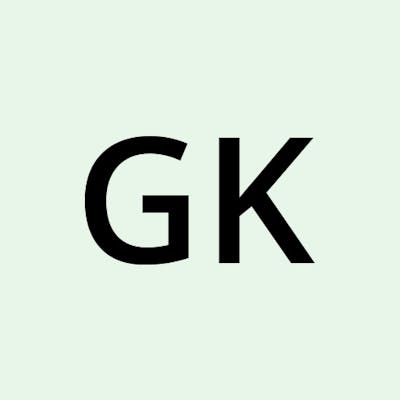FOSDEM 2023: My Top Highlights from the Open-Source Conference
Introduction
FOSDEM 2023 (Free and Open Source Software Developers' European Meeting) is an annual event that takes place in Brussels, Belgium. The conference brings together a diverse range of open-source enthusiasts, developers, and community members from around the world to exchange ideas, share knowledge, and collaborate on the latest open-source technologies and projects. FOSDEM offers a wide range of sessions, talks, and workshops that cover a variety of topics, including programming, system administration, and security. With a strong focus on community building and collaboration, FOSDEM is a must-attend event for anyone interested in the open-source world.
Preparation
Preparing for the FOSDEM conference involved researching the conference schedule and speakers, and booking travel and accommodation. Since this was my fourth time there I knew what to expect and there were no surprises. This year I joined the event with two friends. We started the conference on Friday with a few beers :) .
Selecting which talks to attend at the FOSDEM conference can be a challenging task, as there are often a large number of interesting sessions and workshops to choose from. With a wide variety of topics covering everything from programming and system administration to security and community building, it can be difficult to decide which sessions will provide the most value. It's important to consider one's professional interests and goals when selecting talks, but it's also helpful to step outside of one's comfort zone and attend sessions that cover new and unfamiliar topics.
My Schedule
This year I decided to attend only two Dev rooms the one focused on Go and the one focused on PostgreSQL. Go talks were on Saturday and PostgreSQL talks on Sunday.
Saturday
The State of Go: This is a talk about the changes/new features in the latest go version. If you are a Go developer I highly recommend watching it or reading the slides
Recipes for reducing cognitive load: Interesting talk about how you can write code that is easier to understand. Federico gave some nice tips and examples.
Recommend watchingReconciliation Pattern, Control Theory and Cluster API: A talk about the reconciliation pattern that is used in Kubernetes to ensure that the current state is the desired state.
Five Steps to Make Your Go Code Faster & More Efficient: Nice talk from Bartłomiej. It explains a methodology of how you can optimize your code.
Recommend watchingHeadscale: How we are using integration testing to reimplement Tailscale: Interesting talk about Kristofer's and Juan's journey implementing headscale .
Recommend watchingOur Mad Journey of Building a Vector Database in Go: A talk about https://weaviate.io/ . This is a vector search database built in Go. The talk touches Go internals and I found it very interesting.
Recommend watchingBuilding a basic event-driven application in Go in 20 minutes: Talk about the watermill library. A nice talk which quickly demonstrates the main feature of the library
I learned something from all of the talks and if you have the time, watch all of them. But if I had to suggest only 2 then my picks are The State of Go, Our Mad Journey of Building a Vector Database in Go.
Sunday
Tour de Data Types: VARCHAR2 or CHAR(255)?: Very nice talk about data types in Postgres with nice tips. Andreas did a very nice presentation
Recommend watchingHow to Give Your Postgres Blog Posts an Outsize Impact: This was out of my comfort zone. It's about how to write and promote your tech blog. I realized that it is a lot of work. Thanks Claire
Recommend watchingWhen it all GOes right: Talk about PGX driver, a PostgreSQL driver for Golang. I liked Pavlo's presentation, he has a style.
Recommend watchingDeep Dive Into Query Performance: Talk from Peter Zaitsev the co-founder or Percona.
Don't Do This: This talk has a clickbait title but in my opinion, was the most interesting talk I attended this year. Thanks Jimmy
Highly recommend watching
If you have the time to watch only one talk I recommend the "Don't Do This" talk. If you have the time to watch one more then watch Claire's talk.
Networking
It was good that I attended the conference with two friends. I haven't seen one of them in person since 2019. This was one of the highlights for me . Additionally, I met randomly an old colleague with whom we are in contact now and then. This was great.
Finally, I had the chance to chat with the author of Watermill and had the opportunity to ask advice for on work-related problems from PostgreSQL hackers.
Summary
In conclusion, the FOSDEM conference was a rich and rewarding experience that offered insights into the latest developments in the open-source world. Attending the conference provided the opportunity to connect with a diverse community of like-minded individuals, exchange ideas, and learn from experts in the field. The conference schedule was packed with informative sessions and workshops, and it was challenging to choose which talks to attend due to the variety of interesting topics. Nevertheless, the highlights of the conference provided new perspectives, fresh ideas, and valuable insights that will stay with me for a long time. I highly recommend FOSDEM to anyone interested in the open-source community and technology.
Tips
Be Selective: With so many high-quality sessions and workshops to choose from, it's important to prioritize and select the talks that align with your professional interests and goals
Be open-minded: FOSDEM provides a great opportunity to learn from others and exchange ideas, so be open-minded and willing to engage in discussions and debates with others.
Try Belgium Beer: You should try a few of the Tripel Beers from Belgium
